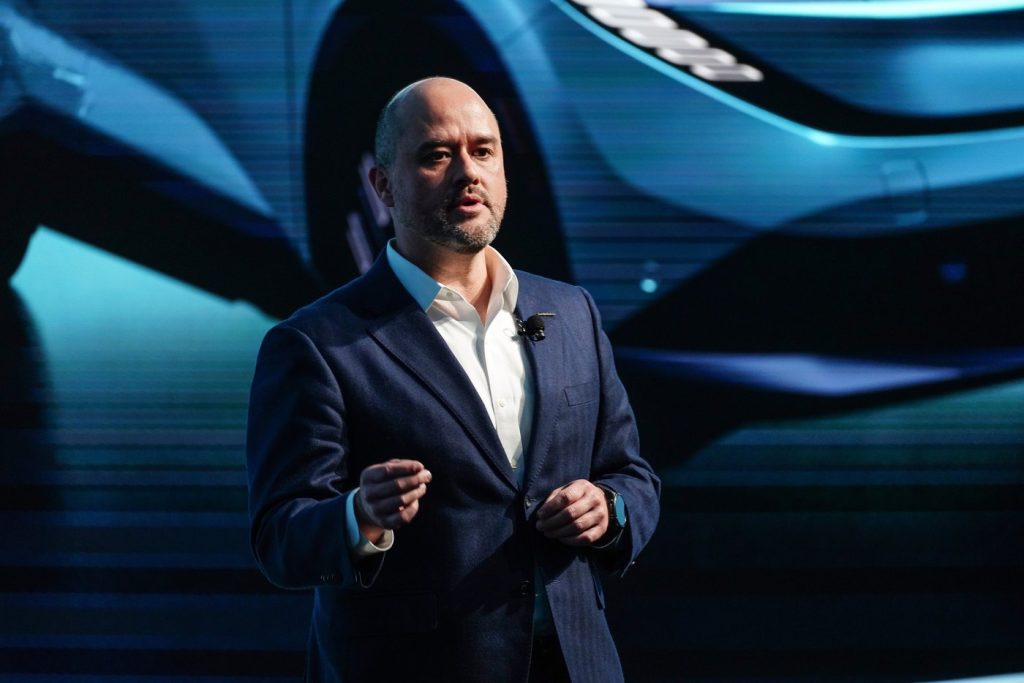ATSUGI, Japan (AP) — Ivan Espinosa, the chief-executive-to-be of the struggling Japanese automaker Nissan, is focused on accelerating decision-making processes to create models that resonate with consumers and drive sales. The 46-year-old chief planning officer, who has two decades of experience at Nissan Motor Corp., expressed concerns regarding the company’s current corporate culture, stating it is “lacking empathy” and necessitating change.
During a recent press briefing at Nissan’s Technical Center in Atsugi, located just outside of Tokyo, Espinosa emphasized the need for collaboration among all team members. “We need to work together as one single team,” he stated, underlining the importance of unity in achieving Nissan's goals.
Nissan appointed Espinosa as the new CEO, effective April 1, replacing Makoto Uchida, who has led the company since 2019. Uchida's departure follows a tumultuous period marked by financial challenges, with Nissan projecting a substantial loss for the fiscal year ending in March. Espinosa inherits a company that has been in crisis since the controversial arrest of Carlos Ghosn in 2018 on allegations of financial misconduct; Ghosn has since fled to Lebanon.
As he steps into his new role, Espinosa faces the challenge of reviving Nissan’s fortunes. He has signaled a willingness to explore partnerships outside the automotive sector, although he refrained from providing specific details. Recently, Nissan opted out of discussions with Japanese rival Honda Motor Co. regarding the establishment of a joint holding company, although the two companies will continue collaborating on technology development.
In terms of production timelines, Espinosa aims to enhance efficiency, targeting a development period of 37 months for new cars and 30 months for derivative models. This approach would represent a relatively rapid pace in an industry where traditional timelines often span several years from design to production.
Nissan is set to unveil a range of new models over the next two years, focusing on appealing vehicles for markets including the U.S., Europe, and Japan. Some models will be showcased as mockups to highlight the company’s strategic turnaround. Espinosa reiterated the commitment to maintaining Nissan’s legacy through notable offerings such as the Leaf electric car, while also emphasizing the introduction of hybrid, plug-in, and fully electric vehicles, along with innovative technologies including self-driving capabilities.
Uchida, while announcing Espinosa's appointment, described him as “a car guy.” Espinosa himself identifies as a "car lover," expressing enthusiasm for the narratives behind each vehicle, particularly how they are developed and eventually cherished by customers. However, market analysts remain cautious about his appointment, noting that Espinosa’s insider status means he continues the path laid out by Uchida, leaving the effectiveness of his strategies open to question.
CreditSights analysts Todd Duvick and Will Lee have commented on the situation, suggesting that at least until the board can evaluate the impact of Espinosa's strategies, it is unlikely that Nissan would consider becoming a subsidiary of Honda.
Moving forward, Espinosa's leadership will be critical in determining how Nissan navigates its ongoing challenges and potential partnerships while striving to reclaim its position as a competitive player in the global automotive market.










